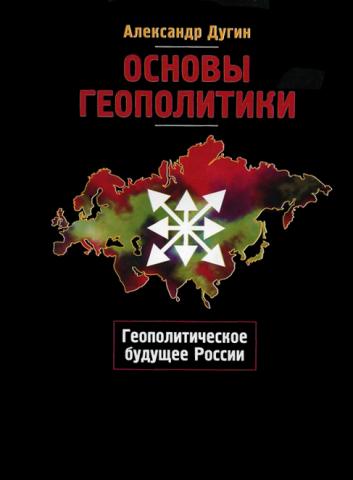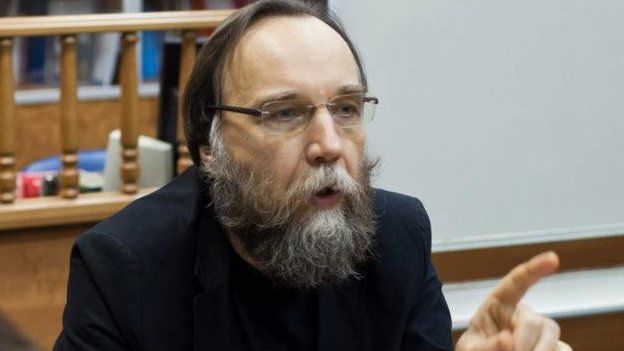Vladimir Putin, the KGB spy turned Russian president and potentially the richest man on the planet, doesn’t seem like the kind of guy to go looking for advice when it comes to international relations. In fact, a common criticism levied at the world leader from Russians is that his attention all too often lies beyond the Russian borders rather than within them, prioritizing a delicate balance between aggressive rhetoric and shrugging his shoulders innocently whenever a global body mentions things like Crimea over the wellbeing of his own citizens.
When I was younger, or maybe just less mentally engaged in the relationship the United States maintains with Putin’s Russia, it was always easy for me to disregard his behavior as that of a villain. It’s an easy enough mental separation to make – I never really understood why Rita Repulsa had it in for the Power Rangers either – I just chalked her giant monsters and his foreign policy both up to “bad guys doing bad guy stuff,” and happily went about my day. The thing is, fiction can be so simple; reality tends to be a lot more complicated.
We’re each the protagonists of our own stories, and although we tend to think of Putin as a totalitarian leader with nothing but world domination on his mind, can’t that be attributed, at least in part, to the fact that he’s the captain of the opposing team? In Putin’s mind, he’s not the Joker, but rather the Batman, using his strength and influence to make the world a better place for his own Gotham city – which is a nation that has experienced a rather dramatic fall from grace during his own lifetime. I think we can agree that to a certain extent, Putin genuinely wants to see Russia return to his globally feared past – an outcome that he sees as a victory for the “good” guys.
So if we can safely establish that, despite all the murder and corruption, Putin believes he’s an actor for good against the likes of his nation’s enemies (namely us)… why would he choose to go about it in the manner he does? Why constantly bait other nations with provocative military demonstrations, continuously side with those that commit human rights violations, and take military action to claim new land for his country at the expense of innocent lives? If he thinks he’s a good guy, why does he so aggressively make an enemy out of the West?
The answer might be as simple as one book.
In 1997, a Russian political scientist named Aleksandr Dugin, with assistance from a Russian general named Nikolai Klokotov, published a book called “Foundations of Geopolitics.” The book quickly gained favor inside the Russian state, soon becoming a textbook for an entire generation of Russian military strategists. Dugin’s writings paint an interesting picture of global politics; one where Russia’s sheer size and position on the planet dictates the inherent need for competition with Western powers – in particular, the United States and Great Britain.

I set out to find this book, hoping to read it for myself and gain a better appreciation for how a man like Putin could justify years of James Bond-villain like behavior. Unfortunately, I wasn’t able to find an officially translated edition, nor was I willing to pay the $190.31 an un-translated paperback copy costs on Amazon, so I was forced to resort to sifting through internet forums and think pieces written about the book over the years to glean as much as I could about the work many believe has shaped Russian foreign policy in our lifetime.
According to what I’ve been able to find, the book begins by explaining the need for conflict with the global powers of the West, but that the prudent move is not direct military action, but rather consistent, and usually discreet, political efforts to discredit and destabilize the political systems in place in countries like the United States. Dugin goes on to describe the need to infiltrate Western institutions and to assert influence from within to shape other nations’ governments in a manner that benefits Mother Russia… if that sounds a little like the accusations levied at Russia during and after the 2016 American presidential election, there’s probably good reason for it.
Dugin and Putin haven’t always gotten along in the public eye, but it isn’t because of Putin’s fascist behavior – it’s because Putin isn’t fascist enough. He accused Putin of not taking decisive enough action by retaking the entire nation of Ukraine, rather than only Crimea. As for the fascist thing, I’m not just resorting to name calling. In an article Dugin published the same year as his “Geopolitics,” entitled, “Fascism — Borderless And Red,” Dugin predicts a Russia that is “not a faded, brownish-pinkish national capitalism, but the blinding dawn of a new Russian Revolution, fascism — borderless as our lands, and red as our blood.”
And just to be clear, Dugin really places some emphasis on the kind of fascism he’s into, which he describes as, “genuine, true, radically revolutionary and consistent, fascist fascism.” This is the point in my research that I realized that I could be wrong about people in general… this guy seems like he actually does want to be a Bond villain.
Already have an account? Sign In
Two ways to continue to read this article.
Subscribe
$1.99
every 4 weeks
- Unlimited access to all articles
- Support independent journalism
- Ad-free reading experience
Subscribe Now
Recurring Monthly. Cancel Anytime.
Much of Dugin’s writing pushes for what he refers to as the “Finlandization” of Europe, which references Russia’s influence over Finland throughout the Cold War.
“The maximum task [of the future],” Google translate tells me he said, “is the ‘Finlandization’ of all of Europe.”
“Finlandizing” Europe is the process by which Russia exerts its military power and political influence over the nations within the continent, but allows them to retain what amounts to nothing more than aesthetic independence. How does the book propose to start that process? First, by annexing Ukraine, which Dugin argues has no value beyond being a buffer between Europe and Russia… and next by encouraging Great Britain to leave the European Union through covert political and social engineering.
You read that right. In 1997, this Russian political scientist laid out his plan for Russian global supremacy and an important element of it was the Brexit, which you may recall was voted for by British citizens only a day before most of them bothered to Google what it means. Unsurprisingly enough, Kremlin owned news sources like RT and Sputnik, as well as numerous lesser known but widely shared outlets, all published articles encouraging English voters to vote in favor of leaving the EU in the months leading up to the decision.
In a translation cited by John Dunlop that has gained the internet’s respect as perhaps the best Western analysis of Dugin’s book, other eerie predictions can be found, such as Dugin’s call for Russia to, “introduce geopolitical disorder into internal American activity, encouraging all kinds of separatism and ethnic, social and racial conflicts, actively supporting all dissident movements – extremist, racist, and sectarian groups, thus destabilizing internal political processes in the U.S. It would also make sense simultaneously to support isolationist tendencies in American politics.”
The books calls for a series of “geopolitical shocks” in Turkey intended to use Kurds and Armenians to keep the nation “off balance;” it emphasizes keeping China’s attentions focused on the region of the globe to its south so Russia can maintain influence over the “Eurasian mainland,” and it even suggests working to establish Germany and France as the predominant powers within the EU and to encourage an anti-American sentiment within the organization to unbalance the EU and its cross-Atlantic alliance. It might sound a bit like Dugin was our generation’s Nostradamus… but it seems more likely that Putin has used Dugin’s teachings as a guide to help him coordinate his efforts to return Russia to its Soviet era splendor.
Officially, there is little evidence to suggest that Vladimir Putin keeps a copy of “Foundations of Geopolitics” on his night table, but chances seem good that the generation of advisors and military strategists he employs are all well versed in Dugin’s writings. Understanding that can not only help us to understand Russian motivations on the geopolitical stage, but it can help us to better safeguard against being manipulated by the Kremlin’s efforts to shape the world into one better suited for Russian expansion.
In my efforts to gain a better understanding of why Vladimir Putin does the things he does, I found myself instead gaining a better understanding of how all these seemingly separate Russian influence campaigns are actually tied to a single anticipated outcome. Russian officials, many of whom are trained in the tactics described within Dugin’s book, don’t see Putin as a dictator without a plan to speak of… instead, they can tie Putin’s behavior directly to a bigger picture, one with Russia acting as the lone dominant power in a post-democracy world.
It turns out he is a Bond villain after all.
Image courtesy of the BBC











COMMENTS